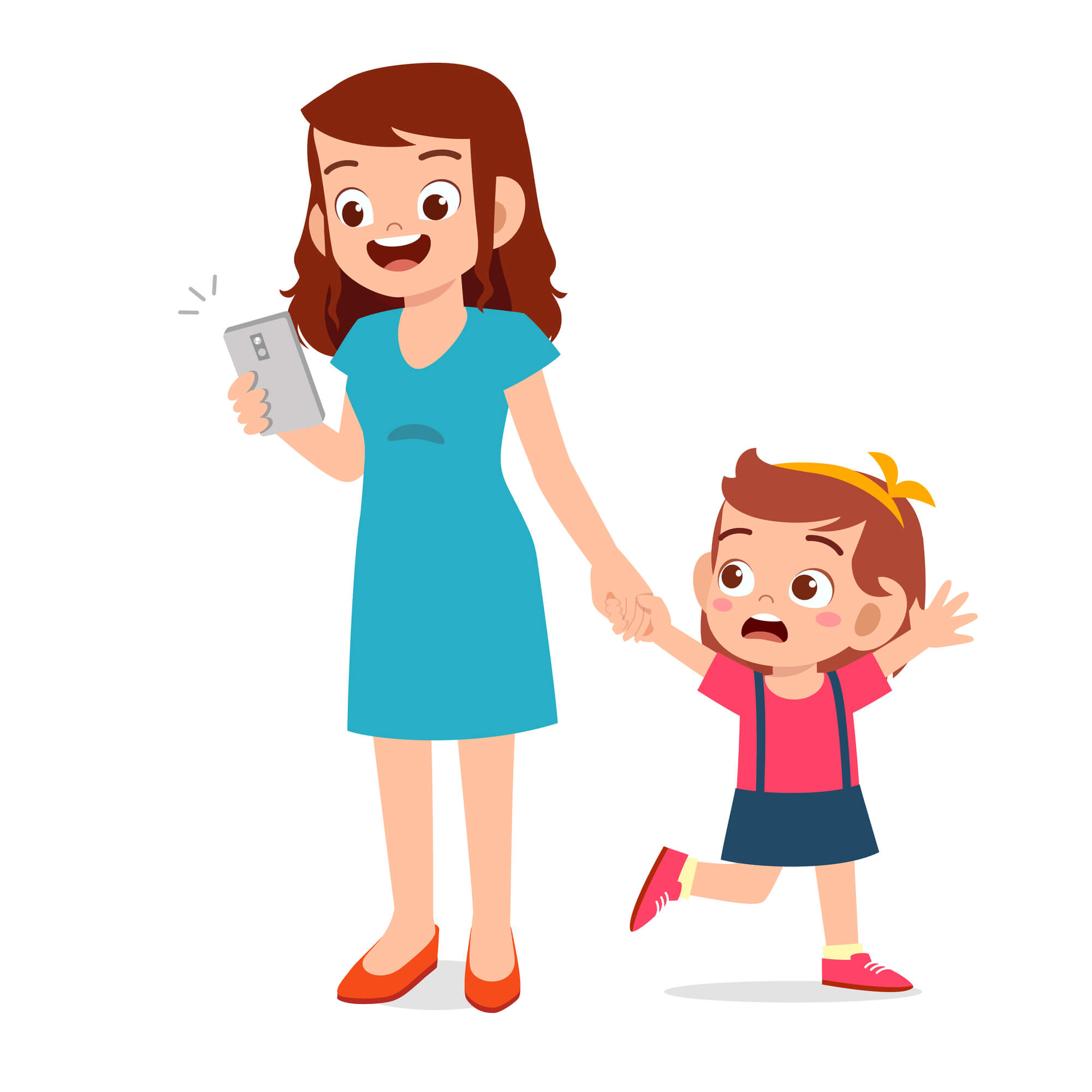The extensive use of the cell phone by the parents may harm the development of the toddlers and have far-reaching consequences

A new study by Tel Aviv University found that communication between mothers and their toddlers decreases fourfold while using smart phones, which may cause damage to the toddler's developmental infrastructure and even have far-reaching consequences. The results of the new study, led by Dr. Katy Borodkin From the Department of Communication Disorders at the Sackler Faculty of Medicine, were published in the journal Child Development.
When a mother reads a really interesting post
Dozens of mothers of two- to three-year-old toddlers participated in the experiment. They were allegedly invited for a study that examines the relationship between the mother's interests and the child's interests, and thus they were asked to perform three tasks: browse a dedicated Facebook page and mark likes for videos and articles that interest them, browse magazines and mark articles that interest them, and finally play with the child when the smart phones and magazines Get out of the room (free play).
"Our goal was to simulate situations in life where the mother has to look after the child, while at the same time she devotes part of her attention to the smartphone," explains Dr. Kati Borudkin. "The mothers were not aware of the purpose of the experiment, so they behaved naturally, dividing their interest between the toddlers and the phones and magazines. We recorded all the interactions between the mothers and the toddlers on video, and then we scanned the recordings frame by frame in an attempt to quantify the interaction between the mother and the toddler."
The researchers defined three dimensions for the interactions between mothers and toddlers. First, the linguistic input was examined, that is, the linguistic content that the mother transmits to the child. According to the research literature, this is an important measure of the child's linguistic development, and it has also been found in the past that a poor linguistic input leads to a poor vocabulary of the child even at older ages.
After that we will examine the index of the exchange of turns, that is, how interactive the discourse is. This is a measure that is considered a predictor of linguistic and social development, when the child learns that he has something to contribute to the interaction as well as the basic social norms of any social interaction.
Finally, the mother's reactivity was examined, that is, to what extent the mother agrees in her response to the child's requests. This is a measure consisting of the immediacy of the response and the appropriateness of the response to the content. For example, when the child says "Look, a truck", there is no right to respond like "Yes, nice" to a response like "Right, a red truck, we saw one yesterday". This index is the basis for almost every developmental aspect of the child: linguistic, social, emotional and cognitive.
parents! Leave the smartphone already!
"We found that the three dimensions of maternal interaction decrease to half to a quarter compared to free play, both when flipping through magazines and when surfing on smart phones," says Dr. Borodkin. "In other words, the mothers talked up to four times less with their children while they were with the smartphone. Moreover, they exchanged fewer turns with the toddler, were able to respond less with immediate and content-adjusted responses, and ignored more of the child's explicit requests. Even when they managed to respond while browsing Facebook, the quality of the response was poor - the mothers 'downloaded a profile' and invested the minimum necessary to communicate with the toddlers."
Another interesting finding is that no difference was found between browsing on a smart phone and reading a magazine. "We have not seen that one media is more distracting than another. However, it is clear that we use smartphones far more than any other media, so they pose a significant developmental threat. It should be understood that we do not have research evidence that would indicate developmental harm to a child as a result of using smart phones, since this is a relatively new phenomenon. On the other hand, we can definitely point to damage to the developmental infrastructure. The consequences of a lack of maternal interaction can be far-reaching."
In conclusion, Dr. Borodkin adds: "In the current study, we focused on mothers, but we assume that the findings of the study also characterize the disturbances in communication between the fathers and the babies, because the patterns of smartphone use are quite similar between men and women, so it can be estimated with high probability that the findings of the study are relevant to both fathers and mothers."
More of the topic in Hayadan:
